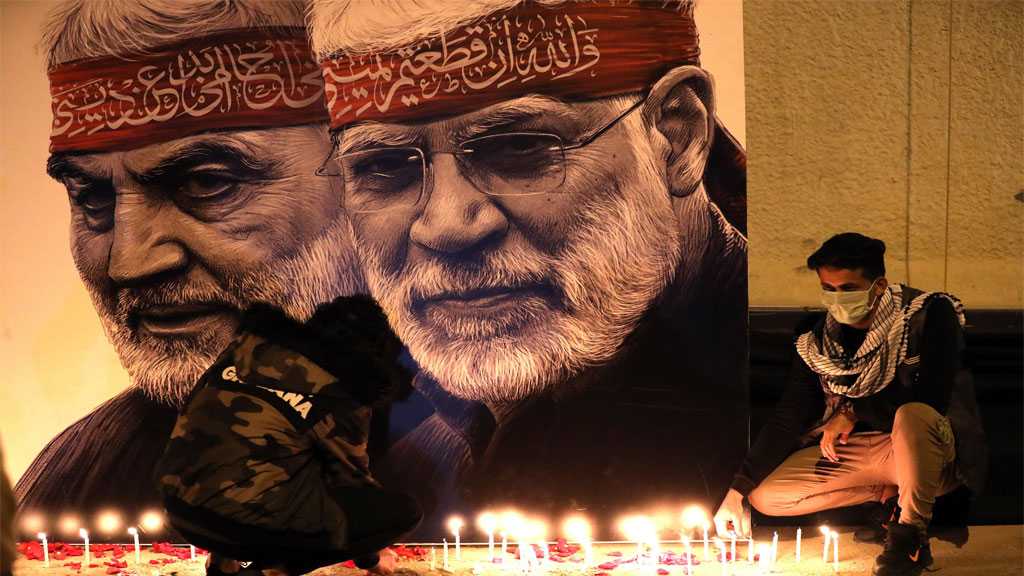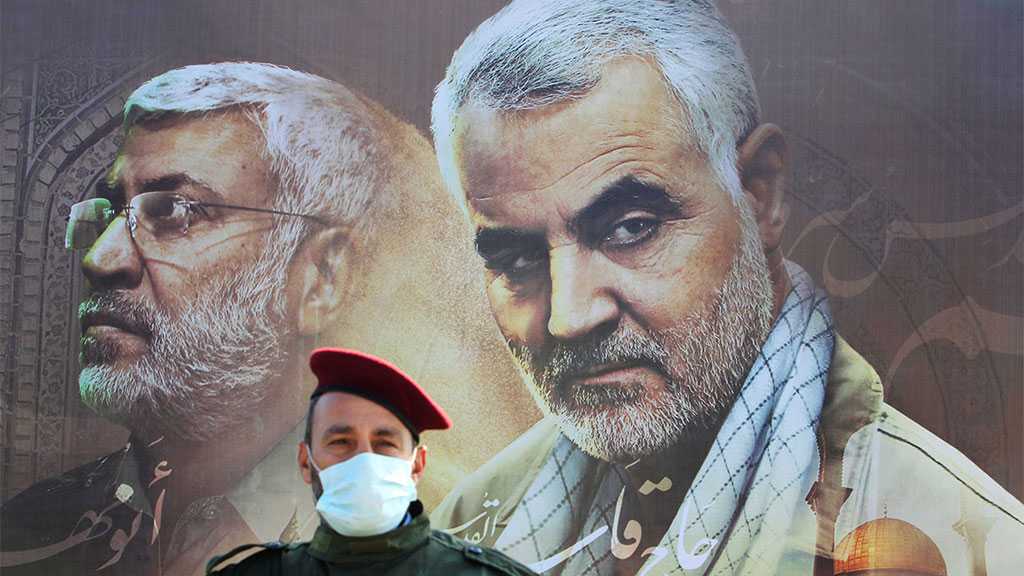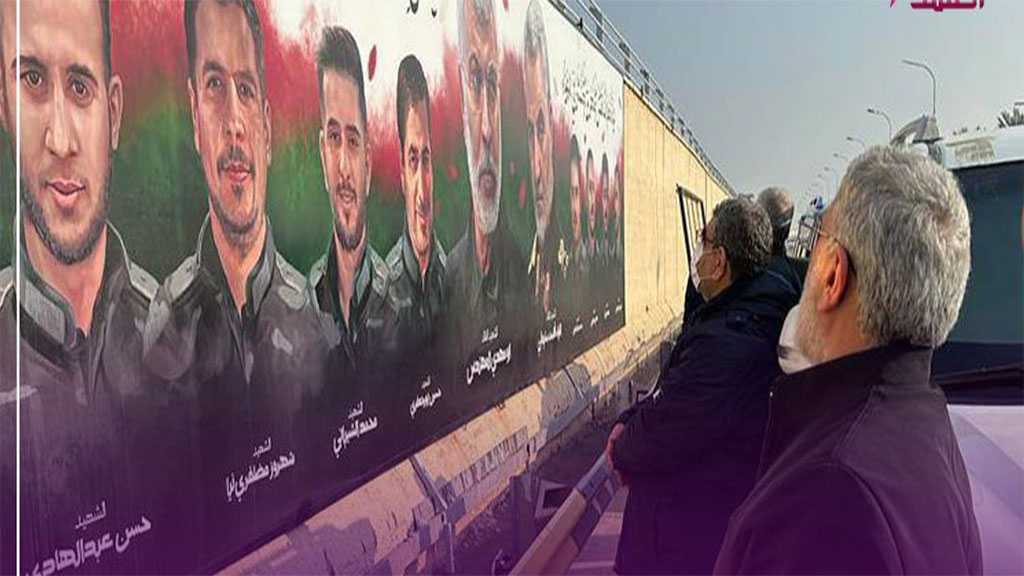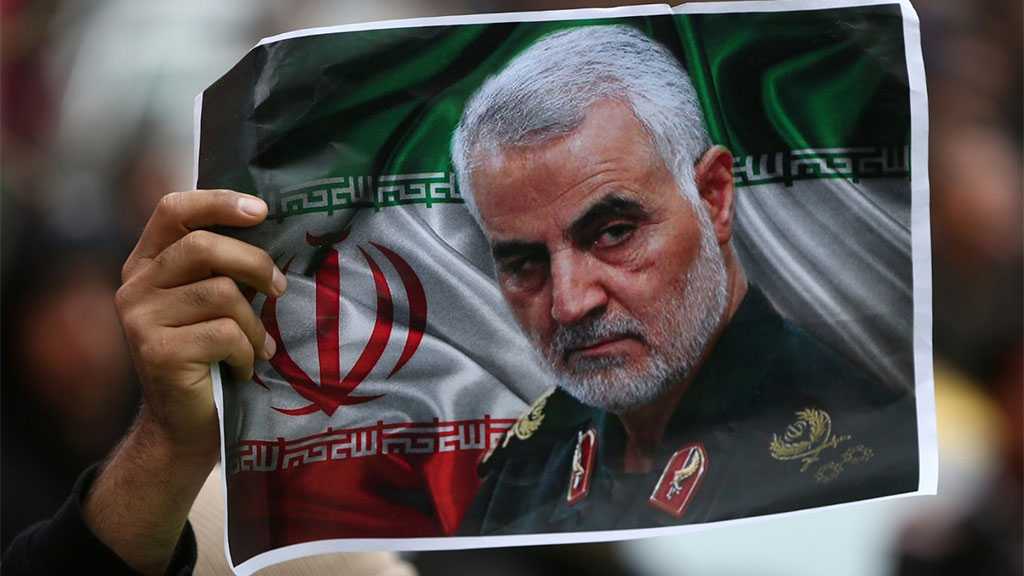
Martyr Soleimani’s Advisor Tells Al-Ahed about Some of His Companion’s Exploits
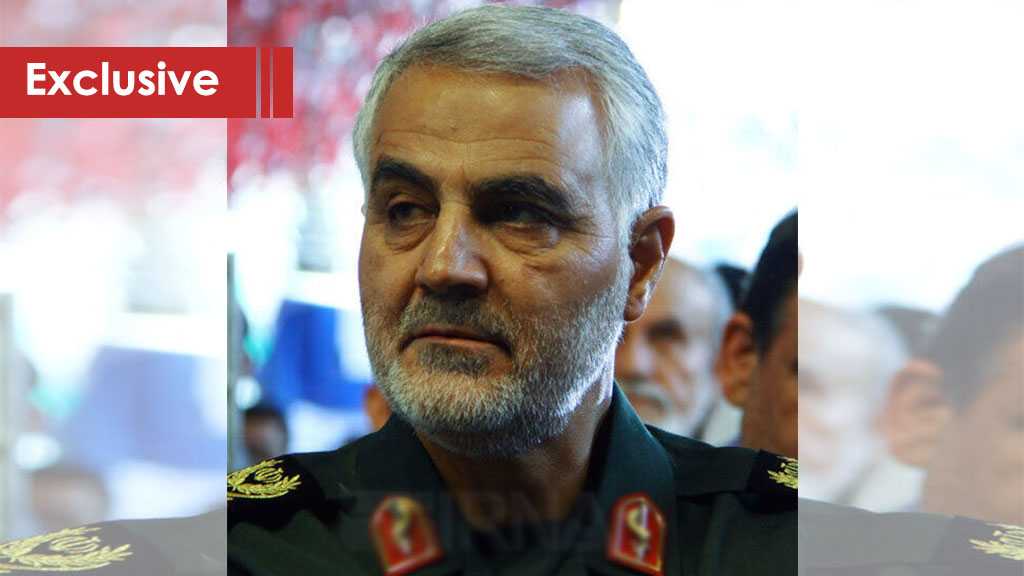
By Mokhtar Haddad
Tehran - As the world marks the second anniversary of the martyrdom of the commander of the Quds Force, Major General Qassem Soleimani, and the deputy head of the Popular Mobilization Units, Hajj Abu Mahdi Al-Muhandis, Al-Ahed news sat down with the former’s companion and advisor. The advisor who wishes to remain anonymous for security reasons spoke about the legendary Hajj and his eternal memory.
He describes martyr Soleimani as “a brave man, a mastermind, and a great theoretician, who did what he said.”
"After the sacred defense stage, Hajj Qassem remained in the Islamic Revolutionary Guards Corps to defend Islam and the Islamic Republic. He was with the people and for the people. He was very interested in following up on people's concerns and issues, especially the families of the martyrs," he added.
The advisor recalls the stages of jihad with the martyr.
“In the east of the country, we faced the bad guys, but at the same time, he was staying up to date on the situation of poor people in these areas. He worked to create job opportunities for them and sought to give safety to the militants and create job opportunities for them in agriculture so that they would stop carrying out harmful actions."
Martyr Soleimani left his mark in more than one arena, according to the advisor.
“During the earthquake in Bam city [east of Kerman province] in 2003, Soleimani went there with martyr Kazemi and stayed for a long time serving the residents. In the torrents of southern Iran, Soleimani was the first to arrive in the region and organize services to help residents. He believed that people should always be served and their problems, concerns, and issues addressed.”
Such actions were not strange to Hajj, according to the advisor.
“Hajj Qassem considered himself a soldier of the two Imams Khomeini and Khamenei, and he considered the word of His Eminence the Leader of the Islamic Revolution to be the distinguishing address. During his duties, he did not distinguish between a person's race and sect, but rather pursued his mission to serve mankind. He devoted most of his time to serving the revolution and Islam."
What about his foreign duties? The advisor says that martyr Soleimani "in his foreign missions seriously followed his program, and he did not sleep more than two or three hours. He did not care about time or place. Even some of those who worked with him were tired from a lot of work."
The advisor explains that "martyr Soleimani was a strategic man, anticipating events before they happened. He stood firmly in the face of the enemy. On this path, he had great sincerity. He did not want to promote his work and achievements, and he believed that the important thing is that God Almighty sees our work."
According to the adviser, Soleimani was more than a military leader. He was brave and a mastermind on the battlefields, with a deep vision. He was professional and had unparalleled influence. He was excelled in cultural and media activities, serving the people, and in diplomatic activities as well.”
The advisor recalls how "many foreign guests who visited the country wanted to meet him, even if it was only for a few minutes."
The advisor points out that martyr Soleimani lived a simple life. Despite his preoccupation with work, he contacted and kept in touch with the sons of the martyrs, talking with them and following up on their affairs. For example, he used to go to the market with the old mother of one of the martyrs [martyr Ali Shafi'i who was the only child of his parents] and help her buy things she needed for the house. This was one of the ways he served the families of the martyrs. That is why many of the sons of the martyrs felt that they had become orphans again when Hajj Qassem was martyred.”
Hajj’s companion recalls an exchange he had with Soleimani.
“One day, I was joking with him and told him that we were praying for his martyrdom. He was very happy and said, ‘Good.’ However, I told him, ‘but not now. Today, the revolution and its leader, the resistance front, the defenders of the holy sites, and everyone needs you.’ He replied, ‘the impact of my blood today, especially among young people, is different from its impact in the future.’”
Today, we see the impact of martyr Soleimani's blood on the region and the world.
Comments
